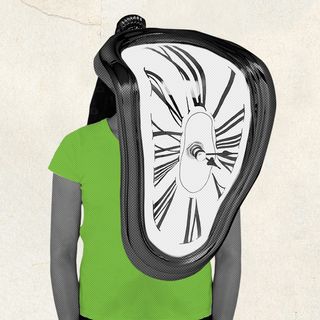
Why Swearing Can Lead To Longer, Happier Lives
“Depending on the situation, profanity can serve as a painkiller, mood-booster or even social bonding tool.”

Growing up, our parents taught us it’s bad to swear. Even as adults, we’re told it’s highly unprofessional to drop f-bombs at the slightest triggers. Be that as it may, science begs to differ. Turns out, using dirty words can not only improve people’s mental health but also allow us to live longer, happier lives. No, I’m not f*****g kidding you!
According to a study by researchers in the U.S., cussing can prevent people from giving up sooner in adverse situations by allowing people to vent their frustration. They performed an experiment requiring the study participants to keep their hands immersed in ice-cold water. Individuals who cursed and swore during the process could keep their hands immersed for longer compared to those who didn’t.
A 2018 study, too, had reached similar conclusions upon finding the usage of swear words during workouts involving the gripping of a hand vise enabled people to squeeze harder and longer.
But how does cursing make us more tolerant of physical pain, like those from immersing our hands in ice-cold water or exerting ourselves in a gym? Experts believe it’s because swearing can trigger people’s “fight or flight” response, pumping more adrenaline through their body and increasing their heart rate. Both can raise one’s pain tolerance on a physiological level by triggering “stress-induced analgesia” or pain relief. “It increases your resilience and strength temporarily,” Emma Byrne, a language expert, explained.
Related on The Swaddle:
Kalu, Moti, Gawar: Why We Should Stop Using Derogatory Terms Couched As Affection
Further, swearing isn’t a sign of people lacking the vocabulary to communicate their emotions; it is a more accurate way to convey them. “Swear words pack an emotional punch that other parts of language just can’t match,” Byrne said last year. “Swearing engages both sides of your brain, the language center in the left brain and the emotional center in the right brain, and the positive impact of this is far-reaching.”
Timothy Jay, an emeritus professor at the Massachusetts College of Liberal Arts whose research has often focused on swearing, told The New York Times that “as [a person’s] fluency [in a language] goes up, so does the ability to say swear words, not the other way around.”
In a way, cursing serves the purpose of emotional catharsis. “There must be evolutionary advantages to cursing, or we would not have evolved to do it… We can express our emotions, especially anger and frustration, towards others symbolically, not through tooth and nail,” Jay adds. When frustrated, swearing provides people an alternative to physically attacking their source of frustration, be it an object or a person, preventing backlash.
As Jay tells CNN rather eloquently, “A dog or a cat will scratch you, bite you when they’re scared or angry… Swearing allows us to express our emotions symbolically. In other words, I can give somebody the finger or say f**k you across the street. I don’t have to get up into their face.”
Related on The Swaddle:
From ‘Cunt’ to ‘Careerwoman’: the Many Ways in Which Language Propagates Sexism
Additionally, research shows that swearing can also help people bond better in a group by serving as a tool to express solidarity. Perhaps, the fact that words like “sh*t” and “f**k” have a universal appeal, in addition to the act of swearing implying honesty on part of the utterer of the profanities — by suggesting they’re honest about their emotions — aid the bonding.
Given its overall impact on stress reduction — by helping people reduce their stress, tolerate pain more easily, and bond more easily — swearing can improve people’s mental health. “Depending on the situation, profanity can serve as a painkiller, mood-booster, or even social bonding tool,” Byrne had noted. As such, as the authors of the present study state, reduced stress levels can help people live longer.
However, swearing may not be as valuable of a tool for people who are used to swearing at the drop of a hat in their everyday lives — rather than reserving it for particularly stressful situations. “Overuse of swear words can water down their emotional effect. Swearing can be an effective and readily available short-term pain reliever if used in moderation,” says Richard Stephens, a senior lecturer in psychology at Keele University in the U.K. “If you’re used to swearing all the time, our research suggests you won’t get the same effect.”
The lesson to take from the science of swearing seems to be: let it loose but only in moderation. At least, until future research tells us otherwise. At the moment, it all goes back to the childhood lesson: “Too much of anything is good for nothing.”
Devrupa Rakshit is an Associate Editor at The Swaddle. She is a lawyer by education, a poet by accident, a painter by shaukh, and autistic by birth. You can find her on Instagram @devruparakshit.
Related


Scientists Discover a Giant Sphere‑Shaped Void in the Milky Way
